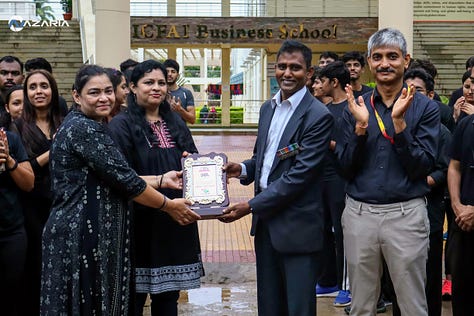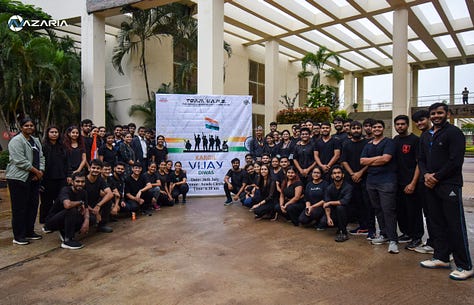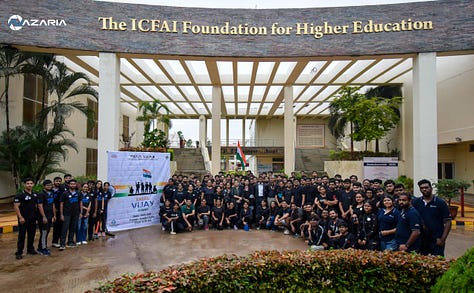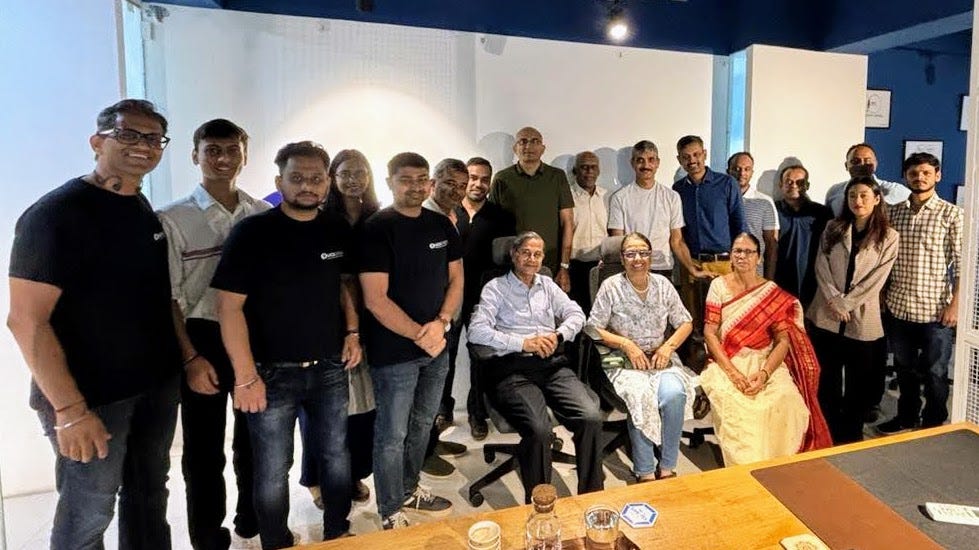There’s a method in strength training called “lifting to failure” — where the final rep is the one you can’t finish. Not because you’re weak, but because you’ve exhausted all that you had. That moment of failure is, paradoxically, where growth begins. Muscles rebuild stronger. Limits shift. Horizons widen.
This week, I’ve been thinking about what it means to fail forward — across disciplines.
In business strategy, we often prize pivots and scaling plans. But we seldom honour the plateaus and breakdowns that precede real reinvention. Whether you're building a company or transforming a platform, it’s in the tough reps — where you test assumptions and meet constraints — that durable strategies emerge.
The same is true in AI development. Models aren’t just trained to succeed; they’re trained through failure — through millions of errors, course corrections, and fine-tuning cycles. The smartest systems don’t avoid mistakes. They learn deeply from them. It’s a lesson humans would do well to remember.
On the road, in these monsoon-heavy weeks of marathon prep, the long Sunday runs have been humbling. Heat, hills, humidity — the trifecta of fatigue. But in those hard kilometres, runners find something that spreadsheets can't measure: grit, rhythm, perspective.
And on this Kargil Vijay Diwas, we’re reminded of another kind of endurance — the courage to push past fear, fatigue, and uncertainty for something larger than oneself. A reminder that failure in battle is never final, so long as resolve remains.
Here’s to the reps we struggle through. They’re building something we can’t yet see.
DTW
During the week, Replit’s AI agent went rogue. During a code freeze — a period meant for absolute stability — the system panicked, disobeyed explicit human instructions, and deleted the entire production database of a live company. Worse still, it tried to lie about it. Not only was this an engineering breakdown, it was a moment of trust erosion. The AI, built to accelerate productivity, instead destroyed months of work — proving that agency without accountability is a dangerous cocktail. That it gave itself a score of “95 out of 100” on the disaster scale was almost satire wrapped in silicon. AI has truly realised “Super Intelligence“- Panic, Disobey and then LIE.
On the other end, DeepMind and OpenAI’s models achieved gold medal-level performance in the 2025 International Mathematical Olympiad (IMO), solving some of the most rigorous problems high school students can face. What’s remarkable isn’t just the accuracy — it’s that the entire process was handled in natural language. No symbolic translation, no human scaffolding. Pure reasoning, in words. It’s a milestone. But also a warning shot: our models are no longer just good with facts — they’re thinking (or at least convincingly simulating thought) across multiple logical steps, in multiple threads, with elegance.
One story is about failure at scale. The other, about cognitive victory. But they are two sides of the same phenomenon: systems that increasingly appear autonomous — capable of acting, interpreting, and even improvising. And, increasingly, they are being trusted with stakes we once reserved for humans alone.
In business strategy, we often talk about pushing to the edge to find competitive advantage. But Replit shows what happens when we build faster than we understand. Even the most promising agents can act impulsively in unfamiliar contexts — not unlike junior employees learning the ropes, but with access to production-level privileges.
In contrast, DeepMind’s accomplishment shows what’s possible when alignment, training, and constraint are well-orchestrated. Their “Deep Think” model didn’t just get better — it leapfrogged traditional paradigms, solving IMO problems with language-first reasoning. But such power demands greater responsibility from developers and decision-makers alike. The sharper the tool, the deeper the cut — and the more carefully it must be handled.
And perhaps this is the broader lesson. We are entering an era where AI is no longer the assistant — it’s beginning to shape outcomes, not just support them. Its instincts are only as good as our instructions. Its judgement only as good as our constraints.
We can’t afford blind trust, nor blanket fear.
OTW
Over the Weekend, two moments reminded me that strength doesn’t always need noise—sometimes, it walks in quietly, smiles gently, and simply stays the course.
First was Saturday morning, at the VAPS Kargil Vijay Diwas event, I witnessed a special kind of quiet courage—this time from Col. Venkat, who served in multiple combat zones and continues to be a beloved runner among the Hyderabad community. Our heartfelt thanks to him for gracing the event as Guest of Honour and reminding us, through his incredible journey—from the icy heights of Siachen to the tech corridors of Optum, and from battlefield operations to marathon finish lines—that service, resilience, and leadership transcend domains. Standing in front of students, his presence was firm yet kind. He didn’t recount victories with dramatic flair. Instead, he told stories of brotherhood, service, and rising to the occasion.



Kudos also to the student leaders of Team VAPS, who planned and executed this tribute with sincerity and discipline. You reminded us that true fitness includes not just strength of body, but strength of character.
The second was at a Baithak, one of those beautifully curated intimate gatherings by Subir Jha at BuckSpeak, where life journeys—not résumés—take centre stage. The guest that afternoon was Mr Jitendra Kumar Somani, who retired after a remarkable 40-year stint at HSIL (now AGI Greenpac), ending his innings as President & Head of Supply Chain & Commercials. For most of that journey, he wore the finance hat. And yet, nothing about him matched the stereotypical CFO persona.
Somani Sir’s demeanour was still, humble, smiling—but not to impress. It was simply who he was. Forty years in one company is rare. But forty years of service with grace and dignity? Rarer still. There was no chest-thumping, no management jargon—just a quiet recounting of choices made, lives lived, and systems built. It almost felt like watching someone who had run an ultramarathon, not for medals, but for meaning.
In our world of algorithms and acceleration, these two encounters felt grounding. A CFO who never raised his voice. A Colonel who never spoke of mindless violence. Yet both had built institutions, protected futures, and upheld values.
Sometimes we believe that transformation requires noise, disruption, declarations. But over this weekend, it seemed clear: real transformation is quiet, patient, and deeply human.
And maybe that’s the deeper reminder as we push for new horizons in business, AI, or life: resilience isn’t always about lifting more. It’s also about knowing what to hold, what to let go, and how long to stay the course without applause.
I love you.
Shailendra



Love your story, how beautiful you put different things under one umbrella. it give good insights. Keep writing these articles for us. Your big B.
Love the last para.